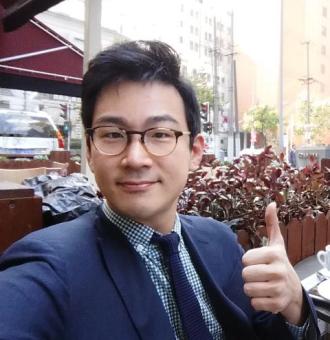Heated deabte on whether game addiction should be a classified disease
입력 2024.12.02 (00:04)
읽어주기 기능은 크롬기반의
브라우저에서만 사용하실 수 있습니다.
[Anchor]
Game addiction is a problem not only for children but also for adults.
Recently, the World Health Organization designated game addiction as a disease called gaming disorder, and in our country, discussions are underway to revise the disease classification.
However, there is also opposition to this.
Reporter Kim Gi-hwa has the story.
[Report]
Last month, the international game exhibition G-Star was held in Busan.
It attracted 215,000 visitors, making it the most successful event ever.
Among teenagers, the percentage of game users has increased to 86%.
The problem lies in excessive immersion.
[Lee OO/Game Addiction Recovery Camp Participant: "I just don't want to do anything else; I feel like I'm just immersed in it."]
In 2019, the WHO recognized gaming addiction, medically termed 'gaming disorder,' as a disease and assigned it an official disease code.
We are now in a situation where we need to discuss whether to include gaming disorder in the disease code revision scheduled for 2030.
The psychiatric community argues that we should actively treat this by assigning a disease code.
[Lee Sang-kyu/Hallym University Psychiatry Professor: "Excessive use of games can lead to decreased concentration, and issues like ADHD can arise as a consequence of gaming disorder."]
On the other hand, the gaming industry opposes this, stating that there is insufficient scientific evidence to attribute the problem solely to games.
[Kim Seong-hwa: "Not only games but also YouTube, TikTok, Shorts, stocks, coins, fishing, and many hobbies, including fans of idol stars, affect many people's daily lives."]
The government formed a public-private consultative body and held its 12th meeting on November 21, but due to conflicting opinions, they could not even set a schedule for a survey related to gaming disorder.
Experts emphasize that increasing communication is crucial to prevent game addiction.
[Lee Hae-guk: "When a child feels too tired and thinks they need to take a break for about an hour, you should acknowledge their struggle. That's how we teach parents."]
This is KBS News Kim Gi-hwa.
Game addiction is a problem not only for children but also for adults.
Recently, the World Health Organization designated game addiction as a disease called gaming disorder, and in our country, discussions are underway to revise the disease classification.
However, there is also opposition to this.
Reporter Kim Gi-hwa has the story.
[Report]
Last month, the international game exhibition G-Star was held in Busan.
It attracted 215,000 visitors, making it the most successful event ever.
Among teenagers, the percentage of game users has increased to 86%.
The problem lies in excessive immersion.
[Lee OO/Game Addiction Recovery Camp Participant: "I just don't want to do anything else; I feel like I'm just immersed in it."]
In 2019, the WHO recognized gaming addiction, medically termed 'gaming disorder,' as a disease and assigned it an official disease code.
We are now in a situation where we need to discuss whether to include gaming disorder in the disease code revision scheduled for 2030.
The psychiatric community argues that we should actively treat this by assigning a disease code.
[Lee Sang-kyu/Hallym University Psychiatry Professor: "Excessive use of games can lead to decreased concentration, and issues like ADHD can arise as a consequence of gaming disorder."]
On the other hand, the gaming industry opposes this, stating that there is insufficient scientific evidence to attribute the problem solely to games.
[Kim Seong-hwa: "Not only games but also YouTube, TikTok, Shorts, stocks, coins, fishing, and many hobbies, including fans of idol stars, affect many people's daily lives."]
The government formed a public-private consultative body and held its 12th meeting on November 21, but due to conflicting opinions, they could not even set a schedule for a survey related to gaming disorder.
Experts emphasize that increasing communication is crucial to prevent game addiction.
[Lee Hae-guk: "When a child feels too tired and thinks they need to take a break for about an hour, you should acknowledge their struggle. That's how we teach parents."]
This is KBS News Kim Gi-hwa.
■ 제보하기
▷ 카카오톡 : 'KBS제보' 검색, 채널 추가
▷ 전화 : 02-781-1234, 4444
▷ 이메일 : kbs1234@kbs.co.kr
▷ 유튜브, 네이버, 카카오에서도 KBS뉴스를 구독해주세요!
- Heated deabte on whether game addiction should be a classified disease
-
- 입력 2024-12-02 00:04:35

[Anchor]
Game addiction is a problem not only for children but also for adults.
Recently, the World Health Organization designated game addiction as a disease called gaming disorder, and in our country, discussions are underway to revise the disease classification.
However, there is also opposition to this.
Reporter Kim Gi-hwa has the story.
[Report]
Last month, the international game exhibition G-Star was held in Busan.
It attracted 215,000 visitors, making it the most successful event ever.
Among teenagers, the percentage of game users has increased to 86%.
The problem lies in excessive immersion.
[Lee OO/Game Addiction Recovery Camp Participant: "I just don't want to do anything else; I feel like I'm just immersed in it."]
In 2019, the WHO recognized gaming addiction, medically termed 'gaming disorder,' as a disease and assigned it an official disease code.
We are now in a situation where we need to discuss whether to include gaming disorder in the disease code revision scheduled for 2030.
The psychiatric community argues that we should actively treat this by assigning a disease code.
[Lee Sang-kyu/Hallym University Psychiatry Professor: "Excessive use of games can lead to decreased concentration, and issues like ADHD can arise as a consequence of gaming disorder."]
On the other hand, the gaming industry opposes this, stating that there is insufficient scientific evidence to attribute the problem solely to games.
[Kim Seong-hwa: "Not only games but also YouTube, TikTok, Shorts, stocks, coins, fishing, and many hobbies, including fans of idol stars, affect many people's daily lives."]
The government formed a public-private consultative body and held its 12th meeting on November 21, but due to conflicting opinions, they could not even set a schedule for a survey related to gaming disorder.
Experts emphasize that increasing communication is crucial to prevent game addiction.
[Lee Hae-guk: "When a child feels too tired and thinks they need to take a break for about an hour, you should acknowledge their struggle. That's how we teach parents."]
This is KBS News Kim Gi-hwa.
Game addiction is a problem not only for children but also for adults.
Recently, the World Health Organization designated game addiction as a disease called gaming disorder, and in our country, discussions are underway to revise the disease classification.
However, there is also opposition to this.
Reporter Kim Gi-hwa has the story.
[Report]
Last month, the international game exhibition G-Star was held in Busan.
It attracted 215,000 visitors, making it the most successful event ever.
Among teenagers, the percentage of game users has increased to 86%.
The problem lies in excessive immersion.
[Lee OO/Game Addiction Recovery Camp Participant: "I just don't want to do anything else; I feel like I'm just immersed in it."]
In 2019, the WHO recognized gaming addiction, medically termed 'gaming disorder,' as a disease and assigned it an official disease code.
We are now in a situation where we need to discuss whether to include gaming disorder in the disease code revision scheduled for 2030.
The psychiatric community argues that we should actively treat this by assigning a disease code.
[Lee Sang-kyu/Hallym University Psychiatry Professor: "Excessive use of games can lead to decreased concentration, and issues like ADHD can arise as a consequence of gaming disorder."]
On the other hand, the gaming industry opposes this, stating that there is insufficient scientific evidence to attribute the problem solely to games.
[Kim Seong-hwa: "Not only games but also YouTube, TikTok, Shorts, stocks, coins, fishing, and many hobbies, including fans of idol stars, affect many people's daily lives."]
The government formed a public-private consultative body and held its 12th meeting on November 21, but due to conflicting opinions, they could not even set a schedule for a survey related to gaming disorder.
Experts emphasize that increasing communication is crucial to prevent game addiction.
[Lee Hae-guk: "When a child feels too tired and thinks they need to take a break for about an hour, you should acknowledge their struggle. That's how we teach parents."]
This is KBS News Kim Gi-hwa.
-
-

김기화 기자 kimkoon@kbs.co.kr
김기화 기자의 기사 모음
-
이 기사가 좋으셨다면
-
좋아요
0
-
응원해요
0
-
후속 원해요
0










![[속보] 심우정 검찰총장 사의 표명…오후 3시 입장 <br>발표](/data/layer/904/2025/07/20250701_1Gcu1S.jpg)
![[속보] 내란 특검, 윤 전 대통령에게 “5일 오전 9시까지 출석” 통지](/data/layer/904/2025/07/20250701_6mdRFo.jpg)

![[영상] 정성호 “검찰 해체 표현 적절치 않아…수사·기소 분리 국민 공감대”](/data/fckeditor/vod/2025/07/01/305901751367182615.png)

이 기사에 대한 의견을 남겨주세요.